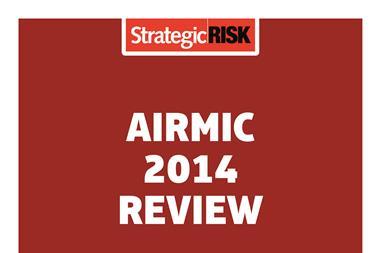Boards at a surprisingly large number of UK corporations are delegating responsibility for risk management rather than taking direct ownership of it themselves, according to initial findings emanating from research carried out on behalf of Airmic
The Cass Business School in London is carrying out a three-year study into the impact of big events on organisations and their reputations, including the role or risk management in reducing the negative effects.
Professor ManMohan Sodhi, who is leading the research, said one of the main points to emerge is the apparent mismatch in many organisations between exposures and the risk management and insurance strategies devised to meet them. A third of risk managers who took part in an in depth questionnaire on the subject said they were worried senior management at their firms were not taking risk seriously as a board issue. Half were concerned that their organisations as a whole had given insufficient consideration to large risks.
“Many firms appear still to be placing excessive reliance on insurance, despite the painful reminders that this is only one part of the risk management jigsaw,” said Airmic technical director Paul Hopkin, introducing the initial findings of the research at the conference.
“As we have seen too often in the past couple of years, insurers can pay compensation for physical losses but not for the reputational damage that occurs when things go badly wrong.
“Too many firms are leaving the protection of their reputation to chance.” Airmic chief executive John Hurrell added: “This research has already highlighted one of the critical issues underpinning corporate resilience and that is the essential role of the board in driving the risk culture of the organisation. “Risk managers can only be truly effective if they are supporting corporate strategy, not battling against it. We expect this research to provide compelling evidence of the importance of implementing a robust risk management strategy driven from the top.”


















